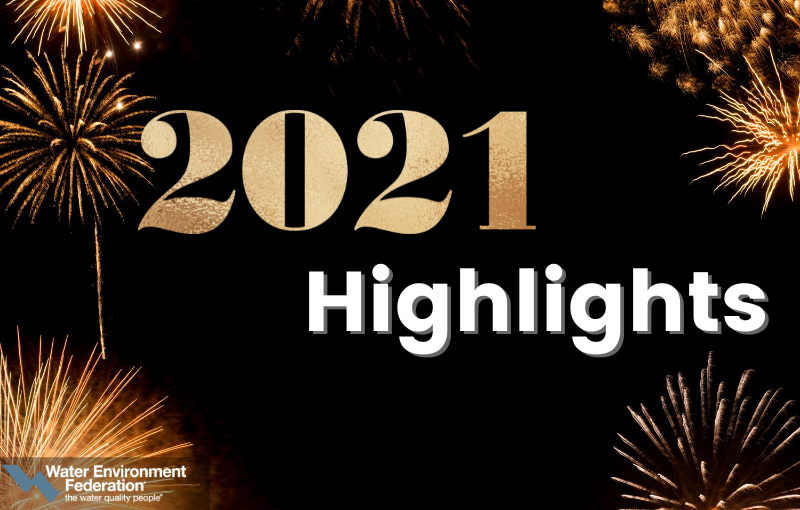Throughout 2021, WEF was focused on delivering educational and technical impact for its members, customers, and the water sector. Although the year was challenging in many ways, it was full of significant achievements and noteworthy highlights that advanced the cause of water quality and public health. These ten are a sampling of the impact that WEF and its members had in 2021.
WEFTEC 2021 Returns To In-Person Event
 After enduring a year and a half of constant uncertainty, WEFTEC 2021 delivered a tremendous win to the entire water sector. While WEFTEC was smaller than normal, it had all the energy of a full-size event. The concourse, hallways, meeting spaces, sessions rooms, and exhibition were absolutely buzzing with excitement and gratitude. The world’s largest annual water quality event is in-person again! WEFTEC 2021 was an excellent rebound and it is expected that WEFTEC 2022 in New Orleans will complete the return.
After enduring a year and a half of constant uncertainty, WEFTEC 2021 delivered a tremendous win to the entire water sector. While WEFTEC was smaller than normal, it had all the energy of a full-size event. The concourse, hallways, meeting spaces, sessions rooms, and exhibition were absolutely buzzing with excitement and gratitude. The world’s largest annual water quality event is in-person again! WEFTEC 2021 was an excellent rebound and it is expected that WEFTEC 2022 in New Orleans will complete the return.
Learn more | Save the date for WEFTEC 2022
Congress Passes Historic Package To Fund Infrastructure
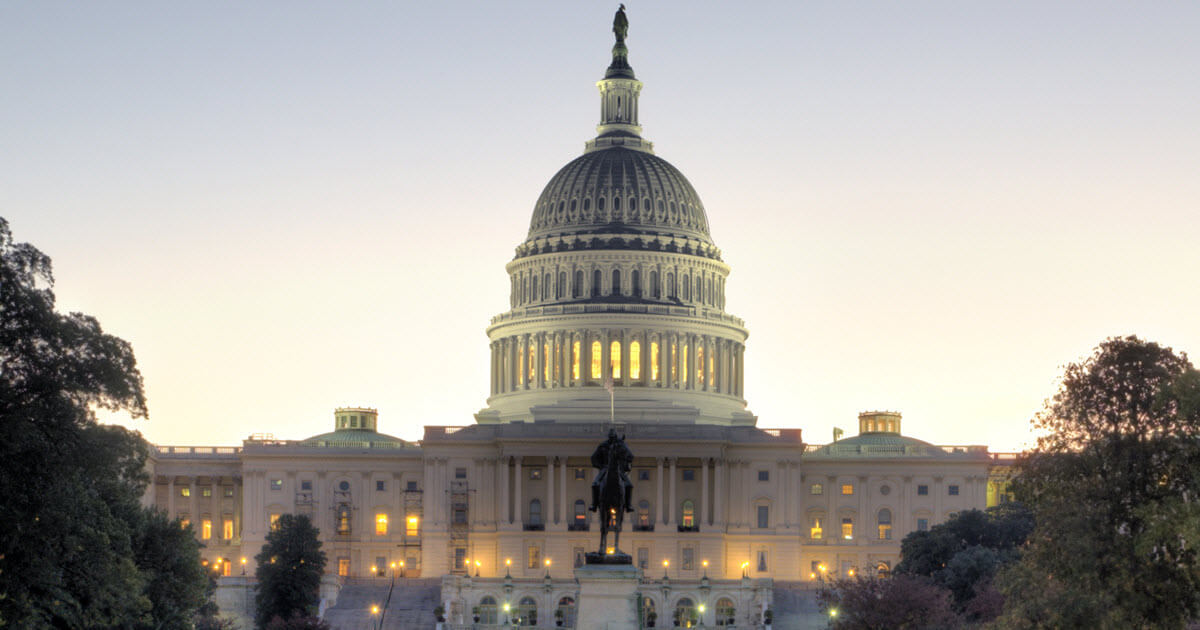 Congress passed the Infrastructure Investment & Jobs Act to provide $1.2 trillion in funding for the nation’s infrastructure. Almost $51 billion is allocated to drinking water, wastewater, and stormwater infrastructure funding. This massive funding increase is the result of years of hard work by WEF members and the broader water sector to make Congress understand the desperate need for infrastructure investments in communities nationwide.
Congress passed the Infrastructure Investment & Jobs Act to provide $1.2 trillion in funding for the nation’s infrastructure. Almost $51 billion is allocated to drinking water, wastewater, and stormwater infrastructure funding. This massive funding increase is the result of years of hard work by WEF members and the broader water sector to make Congress understand the desperate need for infrastructure investments in communities nationwide.
Learn more | Listen to a podcast
U.S. Student Wins Stockholm Junior Water Prize
 Eshani Jha of San Jose, Calif. was selected as the winner of the 2021 Stockholm Junior Water Prize, a prestigious international competition for students to present solutions for water challenges. Jha conducted research on how to remove contaminants from freshwater by replacing active carbon with biochar for use in efficient and less costly water filters.
Eshani Jha of San Jose, Calif. was selected as the winner of the 2021 Stockholm Junior Water Prize, a prestigious international competition for students to present solutions for water challenges. Jha conducted research on how to remove contaminants from freshwater by replacing active carbon with biochar for use in efficient and less costly water filters.
Learn more | Watch her presentation
Release Of Wastewater Treatment Fundamentals II
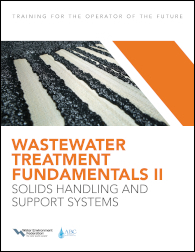 Wastewater Treatment Fundamentals II—Solids Handling and Support Systems covers all aspects of solids handling and support systems and helps operators prepare for the first three levels of certification examinations. In addition to learning the basics of solids handling, operators will gain a thorough understanding of critical aspects of thickening, dewatering, aeration systems and aerobic digesting. After learning from real-life examples, users can apply the material they learn to situations they encounter in their day-to-day work.
Wastewater Treatment Fundamentals II—Solids Handling and Support Systems covers all aspects of solids handling and support systems and helps operators prepare for the first three levels of certification examinations. In addition to learning the basics of solids handling, operators will gain a thorough understanding of critical aspects of thickening, dewatering, aeration systems and aerobic digesting. After learning from real-life examples, users can apply the material they learn to situations they encounter in their day-to-day work.
Learn more | Purchase WWTF II
Biosolids Communications Toolkit Created For Utilities
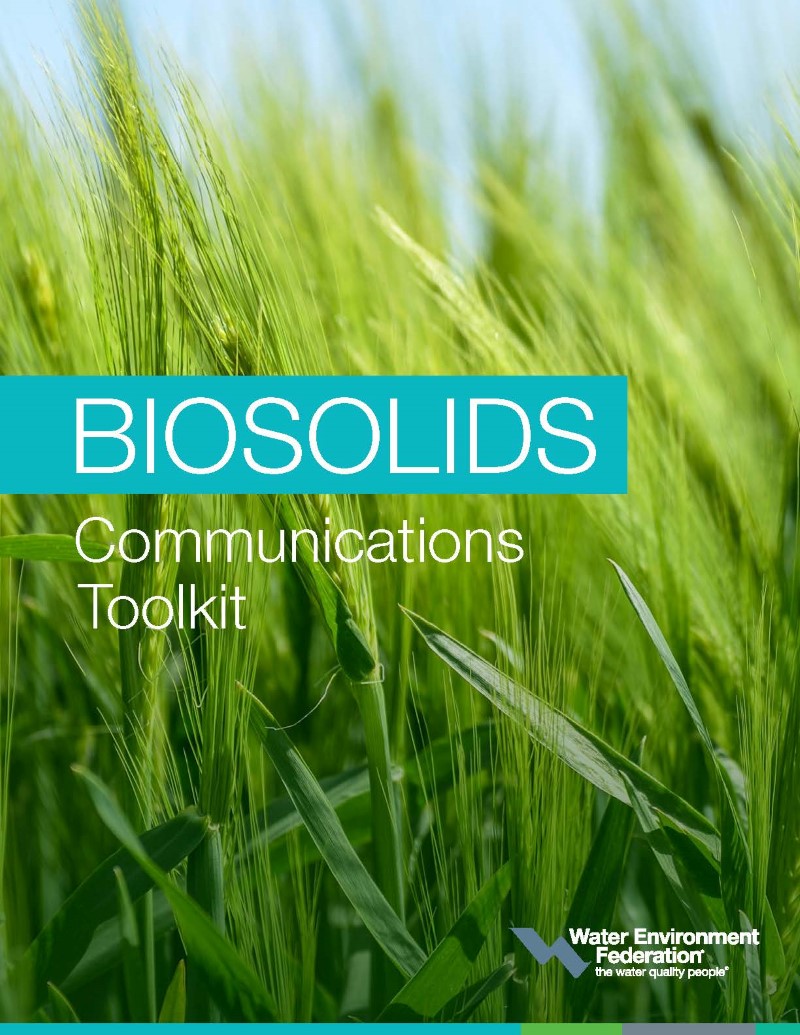 WEF released a comprehensive toolkit for communicating about biosolids in ways that are factual, science-based, and easily understandable. The toolkit includes guidance on challenging communication tasks—responding to or proactively pursuing media coverage, handling concerns raised about the safety of biosolids, creating presentations for use at events or meetings with the public, and developing content to post online or on social media.
WEF released a comprehensive toolkit for communicating about biosolids in ways that are factual, science-based, and easily understandable. The toolkit includes guidance on challenging communication tasks—responding to or proactively pursuing media coverage, handling concerns raised about the safety of biosolids, creating presentations for use at events or meetings with the public, and developing content to post online or on social media.
Learn more | Watch a video
CDC Partners With WEF On National Wastewater Disease Surveillance Network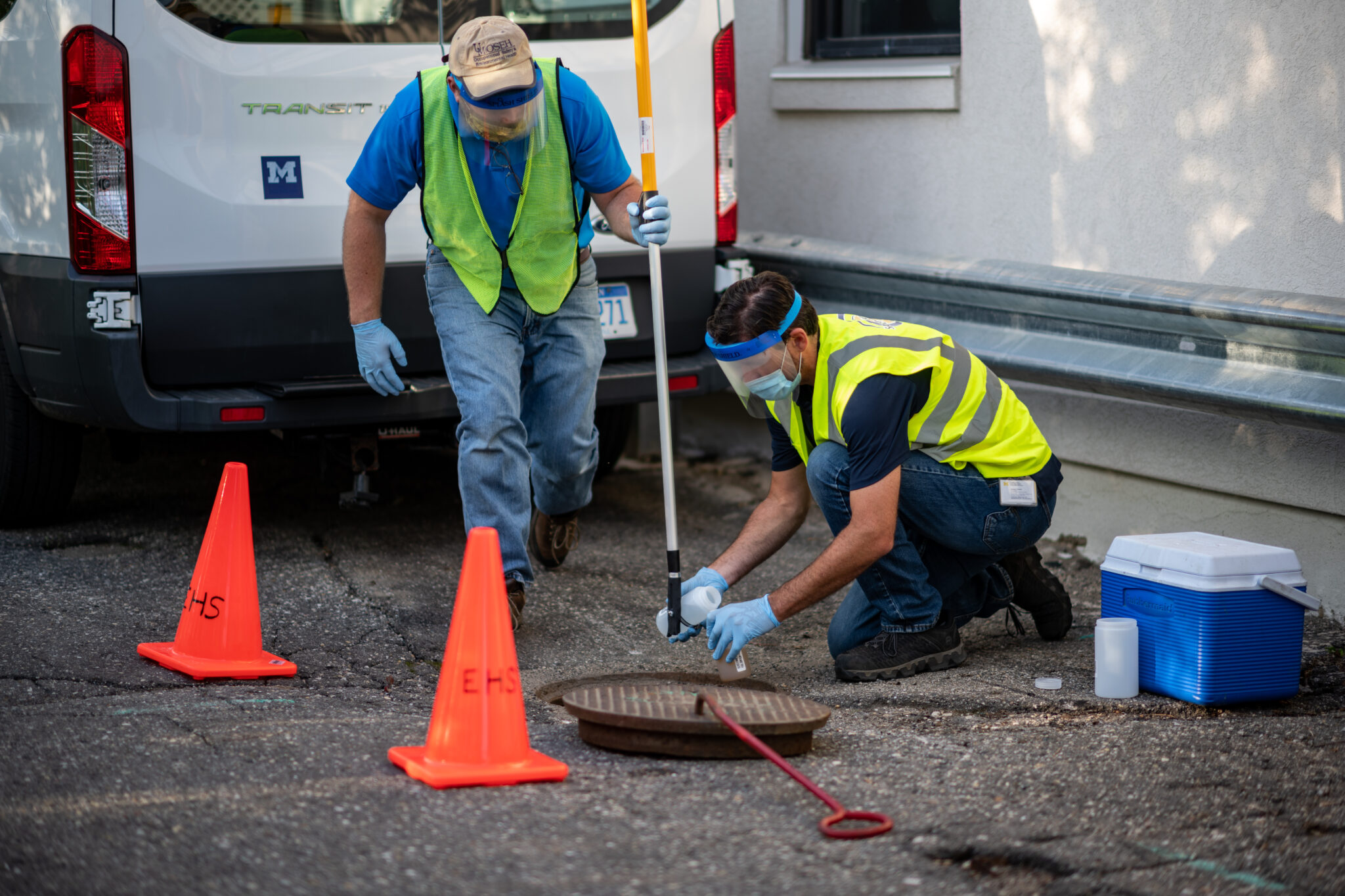 The CDC selected WEF to develop, manage, and provide training for a nationwide network of water utilities, public health agencies, and laboratories participating in wastewater-based disease surveillance. Wastewater-based disease surveillance has been used to study the presence and trends in coronavirus infections in communities. WEF also partnered with CDC and the State of Oklahoma to pilot a breakthrough method for testing wastewater for COVID-19 that provides rapid results at correctional facilities.
The CDC selected WEF to develop, manage, and provide training for a nationwide network of water utilities, public health agencies, and laboratories participating in wastewater-based disease surveillance. Wastewater-based disease surveillance has been used to study the presence and trends in coronavirus infections in communities. WEF also partnered with CDC and the State of Oklahoma to pilot a breakthrough method for testing wastewater for COVID-19 that provides rapid results at correctional facilities.
Learn more | Listen to a podcast
Survey Identifies $8.5 Billion Stormwater Funding Gap, Used For ASCE Report Card
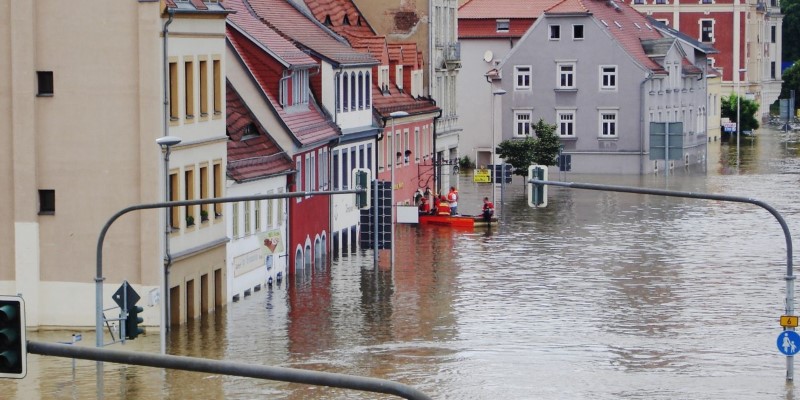 More than 800 U.S. Municipal Separate Storm Sewer System (MS4) programs shared information about the challenges facing their organizations and the resources they need to surmount them as part of the WEF Stormwater Institute’s second MS4 Needs Assessment Survey. Results indicate an annual estimated funding gap of approximately $8.5 billion for U.S. MS4 permittees. WEF’s survey was used by the American Society of Civil Engineers to include a first-ever grade for stormwater in its Infrastructure Report Card.
More than 800 U.S. Municipal Separate Storm Sewer System (MS4) programs shared information about the challenges facing their organizations and the resources they need to surmount them as part of the WEF Stormwater Institute’s second MS4 Needs Assessment Survey. Results indicate an annual estimated funding gap of approximately $8.5 billion for U.S. MS4 permittees. WEF’s survey was used by the American Society of Civil Engineers to include a first-ever grade for stormwater in its Infrastructure Report Card.
Learn more | See ASCE report card
Launch of Operator Scholarships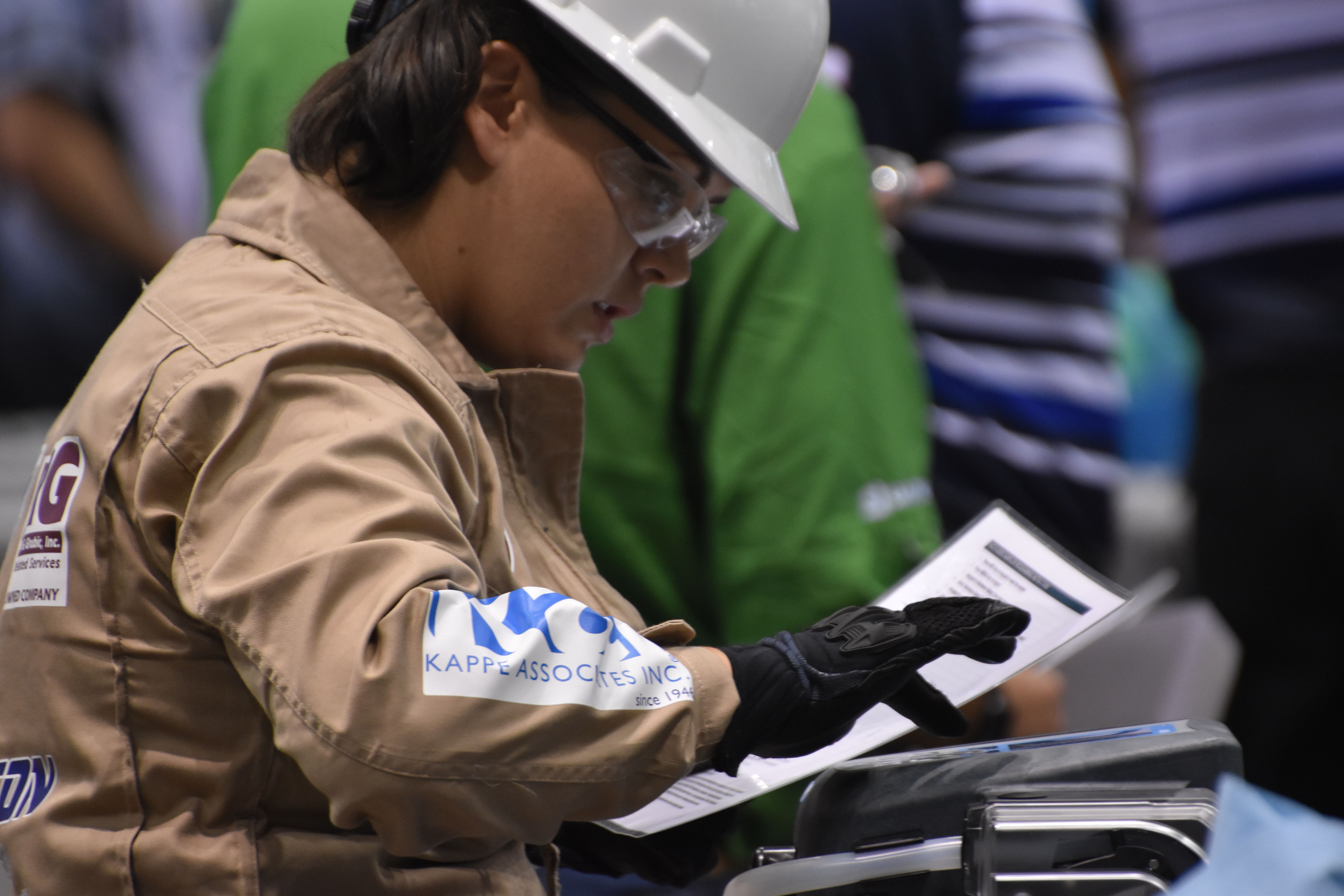 The WEF Operator Scholarship Program provides up to $5,000 each for individuals who are seeking water sector operator education, training, or certification to enter the industry or to advance their knowledge, skills, abilities, or license. The Operator Scholarship supports entry or experienced level operators seeking professional development in municipal and industrial treatment, reuse, collection and distribution, and stormwater. This year, WEF awarded 15 extraordinary individuals scholarships totaling $37,500.
The WEF Operator Scholarship Program provides up to $5,000 each for individuals who are seeking water sector operator education, training, or certification to enter the industry or to advance their knowledge, skills, abilities, or license. The Operator Scholarship supports entry or experienced level operators seeking professional development in municipal and industrial treatment, reuse, collection and distribution, and stormwater. This year, WEF awarded 15 extraordinary individuals scholarships totaling $37,500.
Learn More | View the 2021 Awardees
Continued Focus on Diversity, Equity, and Inclusion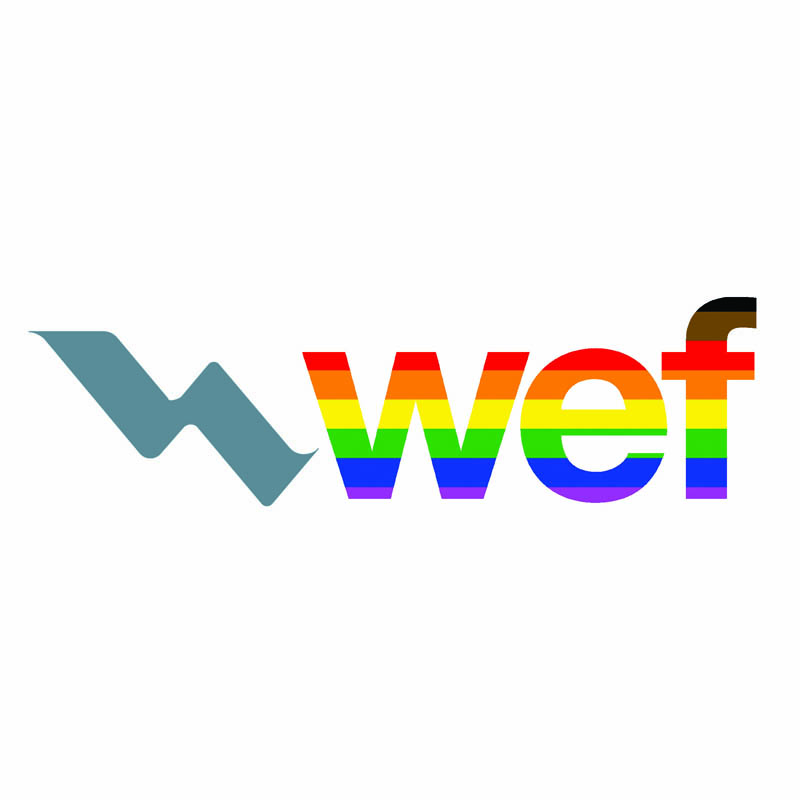 WEF continued its work to advance diversity, equity, and inclusion (DEI) within the organization and across the water sector. A DEI policy was implemented by the Board, members were surveyed about a variety of issues with key findings shared publicly, and new learning exchanges and meet-ups provided opportunities for people with common backgrounds and interests to connect at WEFTEC. WEF also created a series of fact sheets to help inform the conversation and provide additional insights into different aspects of DE&I, including on the topics of bias, LQBTQ, microaggressions, and racism.
WEF continued its work to advance diversity, equity, and inclusion (DEI) within the organization and across the water sector. A DEI policy was implemented by the Board, members were surveyed about a variety of issues with key findings shared publicly, and new learning exchanges and meet-ups provided opportunities for people with common backgrounds and interests to connect at WEFTEC. WEF also created a series of fact sheets to help inform the conversation and provide additional insights into different aspects of DE&I, including on the topics of bias, LQBTQ, microaggressions, and racism.
Learn more | Read WEF’s DEI Policy
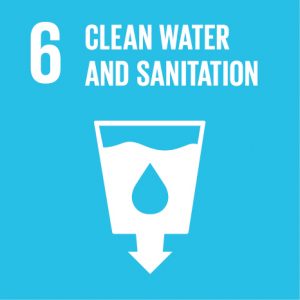 As an official partner of UN-Water, WEF continued to work with its members who are contributing to the advancement of the UN Sustainable Development Goals (SDGs). WEF debuted its first ever SDG 6 Theater at WEFTEC 2021, hosting a variety of speakers, focusing on SDG 6 – Clean Water and Sanitation, and touching on topics related to all 17 goals, including SDG 3 – Good Health and Well-Being, SDG 5 – Gender Equality, SDG 13 – Climate Action, SDG 17 – Partnerships for the Goals.
As an official partner of UN-Water, WEF continued to work with its members who are contributing to the advancement of the UN Sustainable Development Goals (SDGs). WEF debuted its first ever SDG 6 Theater at WEFTEC 2021, hosting a variety of speakers, focusing on SDG 6 – Clean Water and Sanitation, and touching on topics related to all 17 goals, including SDG 3 – Good Health and Well-Being, SDG 5 – Gender Equality, SDG 13 – Climate Action, SDG 17 – Partnerships for the Goals.
